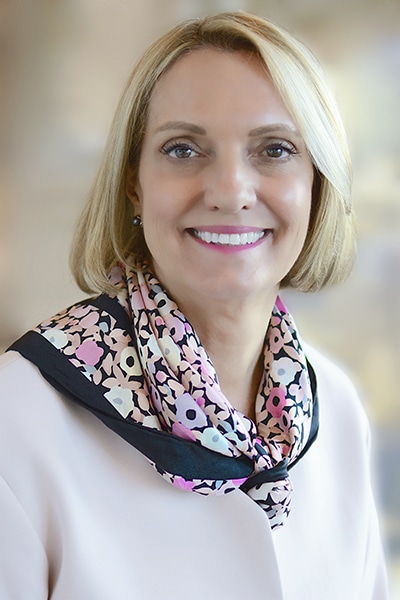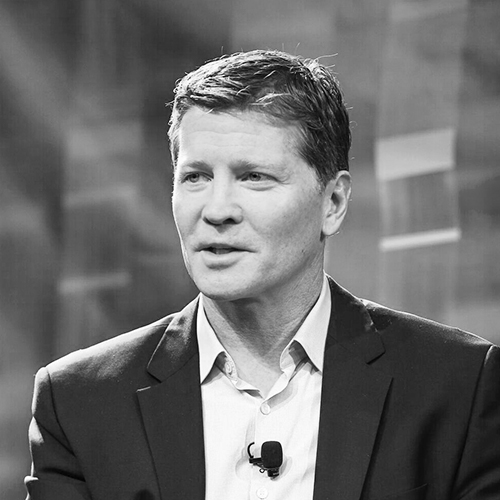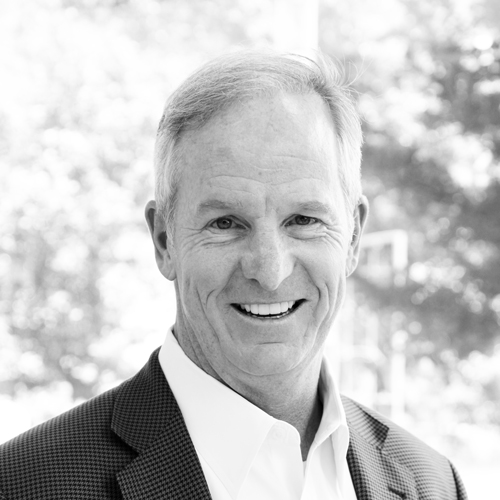Despite her busy personal and professional life, Annette Walker has remained focused on improving the quality of life for other people. It’s a passion she has pursued no matter how full her plate, she says.
Walker was recently appointed president of City of Hope Orange County, in Irvine, California, where she will drive the development of a $200 million cancer center and the expansion of prevention programs throughout the region. For her, this role is an opportunity to take a firm stand against cancer in the community where she has lived for more than forty years.
“Cancer is the true competitor,” Walker says. “I look forward to aligning our community’s resources to meet the needs of the 3.2 million people in Orange County, of whom one in three is likely to receive a cancer diagnosis sometime in their lives.”

Before assuming her job at City of Hope, Walker was president of strategy for Providence St. Joseph Health (PSJH), the country’s third-largest health system, which operates 50 hospitals, 829 clinics, and a range of services across 7 states in the western US. Serving the organization for thirteen years, she established herself as an innovator and as someone who promoted health and all-around wellness.
“As leaders, it’s our responsibility to use our influence to help make peoples’ lives better,” says Walker, who was named by Modern Healthcare magazine as one of the Top 25 Women in Healthcare in 2017. “It’s been a commitment of mine to especially help families and make it possible for people to be good parents—among our employees and throughout the communities I am helping to serve.”
While at PSJH, Walker made focusing on the community an all-encompassing endeavor, which was consistent with the health system’s core values. Founded by the Sisters of St. Joseph of Orange and the Sisters of Providence, the organization embraces a mission to serve all, especially the economically disadvantaged and most vulnerable.
“The mission is to be God’s presence in the world and to make sure people know that they are loved,” Walker says. “The health system does this by tending to their physical, spiritual, and emotional health. This perspective helps make people whole—body, mind, and spirit. It also honors the dignity of each human being as more than simply a physical body to help heal.”
Inspired by the PSJH mission, Walker led the development of the system’s strategic plan called, Health for a Better World. The foresighted road map takes the organization beyond traditional hospital settings, reaching deep into the community and working with like-minded partners. This new direction includes a focus on virtual health, as well as the social determinants of a healthy population, including schools, housing programs, community clinics, and more.
“Communities still need hospitals available 24/7, and we know we need more ambulatory centers where people can easily access care. That’s not changing,” Walker says. “What is changing is the breadth of a health system’s vision and the kinds of things it sees itself involved in. PSJH has a goal to lead the way in improving our nation’s mental and emotional well-being, to transform care and improve outcomes for all populations, especially those covered by Medicaid. These are big goals, but they are where healthcare leaders must focus.”
Along with treating physical illness and injury, focusing on the nation’s mental health crisis is a major PSJH initiative. Recognizing that more than 40 million adults have a mental health condition, and more than half of them go untreated, the health system is addressing stigma, gaps in care, and the lack of social support which impacts people who are suffering.
The new PSJH model of care integrates mental health treatment into care settings, creating partnerships to reach more people and helping individuals before they’re in crisis. This effort entails screening for problems in the primary care setting when they can be spotted and treated early. Additionally, there is a special focus on populations most at risk, including mothers suffering from postpartum depression, and children ages eight to fifteen whose mental health issues often go undiagnosed and untreated.
To ensure the health system remained aligned with local needs, Walker spent considerable time talking with employees, leaders, and members of governance. In developing the organization’s plan, she and her colleagues engaged more than 1,200 people in their discussions. “We met with people, really trying to understand the current state, comprehend what the concerns were in their communities and, then, what the vulnerabilities and threats were and how we should come together to transform our future.”
For Walker, the philosophy of listening and involving many people in decision-making is essential. “We can’t control all the things that are going on in healthcare, but there are some elements we can control, including how we listen and respond. We can raise the bar on cooperation for the good of the community. We can hold ourselves accountable to act justly and treat all people with love and compassion.”


